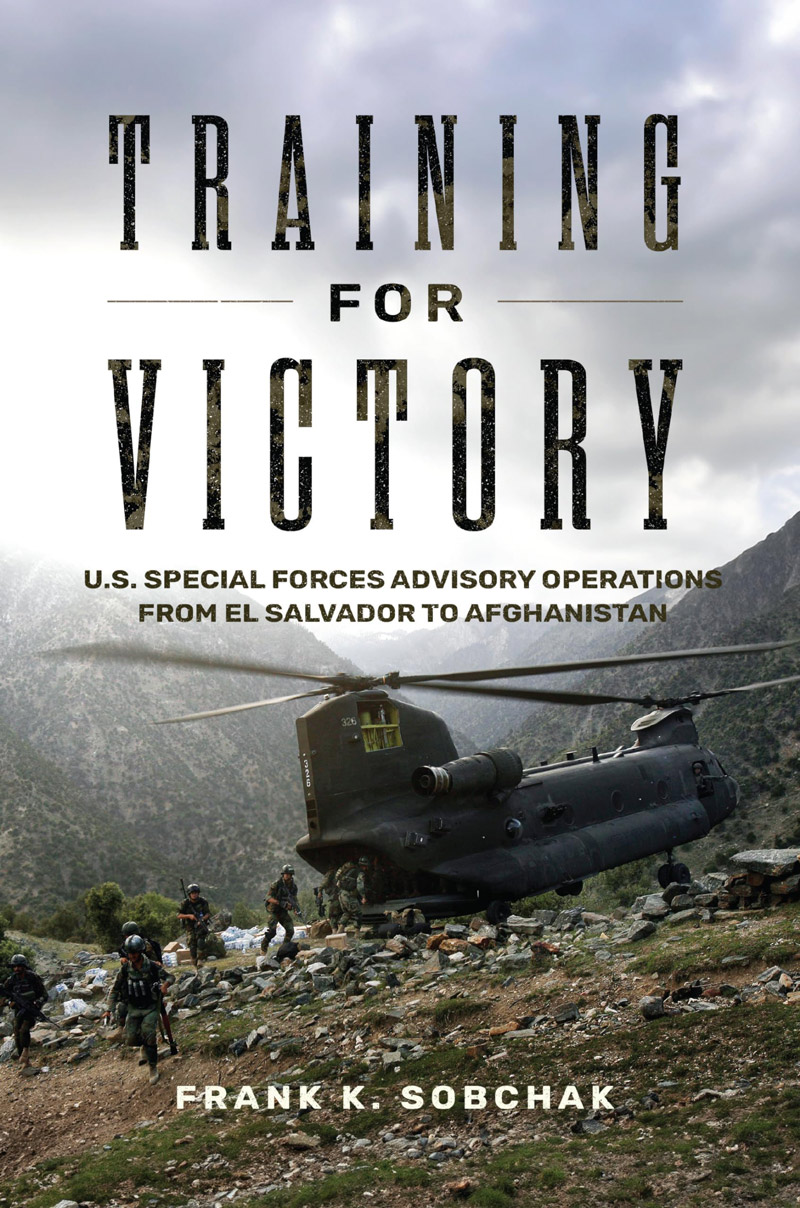Book Review
Training for Victory: U.S. Special Forces Advisory Operations From El Salvador to Afghanistan
by Frank K. Sobchak
Naval Institute Press (November 19, 2024)
352 pages
Available in hardcover, Kindle, audiobook & audio CD

By How Miller
T.E. Lawrence (“of Arabia” in World War I) said: “Do not try to do too much with your own hands. Better the Arabs do it tolerably than that you do it perfectly. It is their war, and you are to help them, not to win it for them.”
Since the U.S. Army’s Special Forces’ groundbreaking effort in the Vietnam War, we have had many missions around the world.
Green Berets and others have tried the concept of Security Force Assistance many times and in many ways. Starting with the conclusion that SF-trained units were outstanding, while units trained by others fell short, Frank Sobchak, in his book Training for Victory, shows how he used some analytics to draw some conclusions about how effective five of our core tenets have been at helping or hindering our success. There were some surprising conclusions, questioning a couple of them that we “hold dear.”
He looked at missions to El Salvador, The Philippines, Columbia, Iraq, and Afghanistan as to how and why we were able to bring Host Partners’ fighting units close to our own competency and how they were able to manage on their own. Bob brings essential information to the front about these operations. Few of us have extensive knowledge about all five of them.
He found that the elite units SF trained were the most successful at acting on their own, being self-driven, enduring forces for their countries, using largely our moral example.
One of the tenets we “hold dear” is that language competency is essential along with cultural sensitivity. However, he finds that having a large number of team members be as close as possible to “native speaking” to be mission enhancing rather than mission essential, while cultural sensitivity somewhat quickly grew with time. He found that having learned any foreign language helps our Green Berets develop the appropriate skills.
Another finding is that the ability to accompany our host partners into combat is not always the “secret sauce.” While USSF being allowed by the host nation to call the shots often led to better results, not being able to accompany them into battle could be overcome by some units who were already highly competent and motivated.
Whether or not you agree with these findings, it is likely they will be looked at as part of future long-term planning. His conclusions dovetail nicely with the fairly recent decision to use SFABs to train regular troops.
Frank has shared a sample from his book. A further look at his methodology is also shared in the editor’s note on page 6 preceding the excerpt.
Leave A Comment